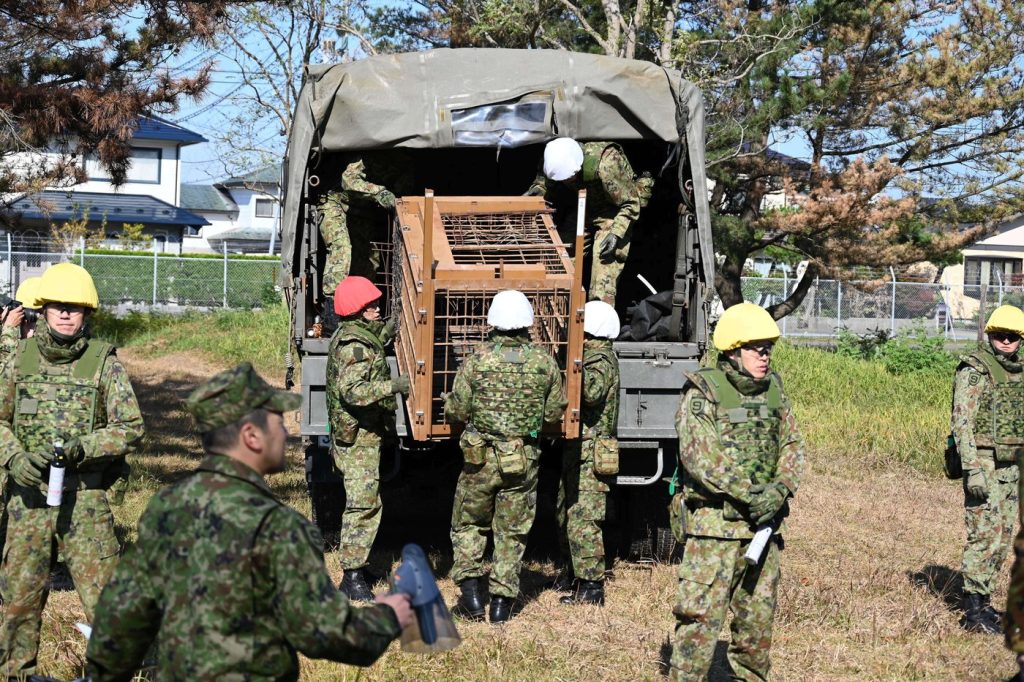TOKYO (AP) — Japan's Defense Ministry dispatched troops on Wednesday to the northern prefecture of Akita in response to a significant increase in bear attacks that have alarmed residents in the mountainous region. Bears have been sighted near schools, train stations, supermarkets, and even a hot springs resort, with daily reports of encounters and attacks across Japan, primarily occurring in the northern regions.
According to statistics from the Environment Ministry released at the end of October, over 100 people have been injured and at least 12 fatalities have been reported due to bear attacks throughout Japan since April. In response to the troubling trend, Deputy Chief Cabinet Secretary Fumitoshi Sato emphasized the urgency of addressing the issue, stating, “Every day, bears intrude into residential areas in the region and their impact is expanding.”
The Defense Ministry and Akita prefecture formalized an agreement on troop deployment on Wednesday afternoon. This arrangement enables soldiers to set box traps baited with food, transport local hunters, and assist in the disposal of deceased bears. However, officials clarified that soldiers would not utilize firearms to cull the bears. Akita Governor Kenta Suzuki expressed the dire need for additional manpower, stating that local authorities are becoming “desperate” amid the rising number of bear-related incidents.
On Tuesday, Defense Minister Shinjiro Koizumi mentioned that the mission aims to ensure the safety of daily life for residents, but also noted that the Self Defense Force’s primary responsibility is national defense, limiting their capacity for ongoing support in managing the bear situation. The Japanese Self-Defense Forces (SDF) are currently facing staffing shortages, and thus far, no additional requests for troop assistance have been made.
Akita prefecture is experiencing the most severe impact, with reports indicating that bears have attacked over 50 individuals since May, resulting in at least four deaths. Local government data suggests that approximately 70% of these attacks have occurred in residential areas. A recent tragedy involved an elderly woman, who was found dead following an apparent bear attack while mushroom-hunting in Yuzawa City. Another elderly woman was killed in Akita City while working on a farm, and a newspaper delivery man was injured in a bear attack on Tuesday in the same city.
Experts attribute the increasing bear problem in Japan to the country’s aging and declining rural population. Abandoned neighborhoods and farmland with persimmons or chestnut trees create attractive habitats for bears, prompting them to venture into residential areas. Once bears find food, they are likely to become habitual visitors. Additionally, local hunters are aging and not necessarily experienced in bear hunting, leading some experts to advocate for training police and other authorities as “government hunters” to manage bear populations effectively.
In response to the growing crisis, the government has established a taskforce to develop an organized response to the bear problem by mid-November. Potential strategies include conducting bear population surveys, implementing communication devices for bear warnings, and revising hunting regulations. Furthermore, there is a consensus among officials that training in hunting and ecology for experts will be essential to controlling the bear population. The Ministry of the Environment noted that the lack of preventive measures in depopulated and aging northern regions has contributed to the rising numbers of both brown bears and Asiatic black bears.











